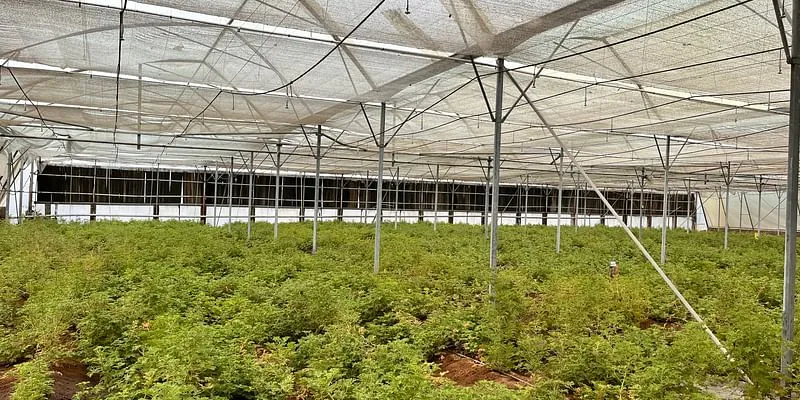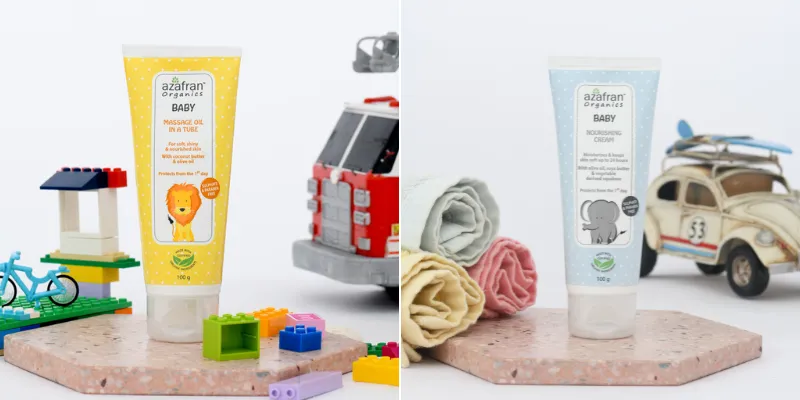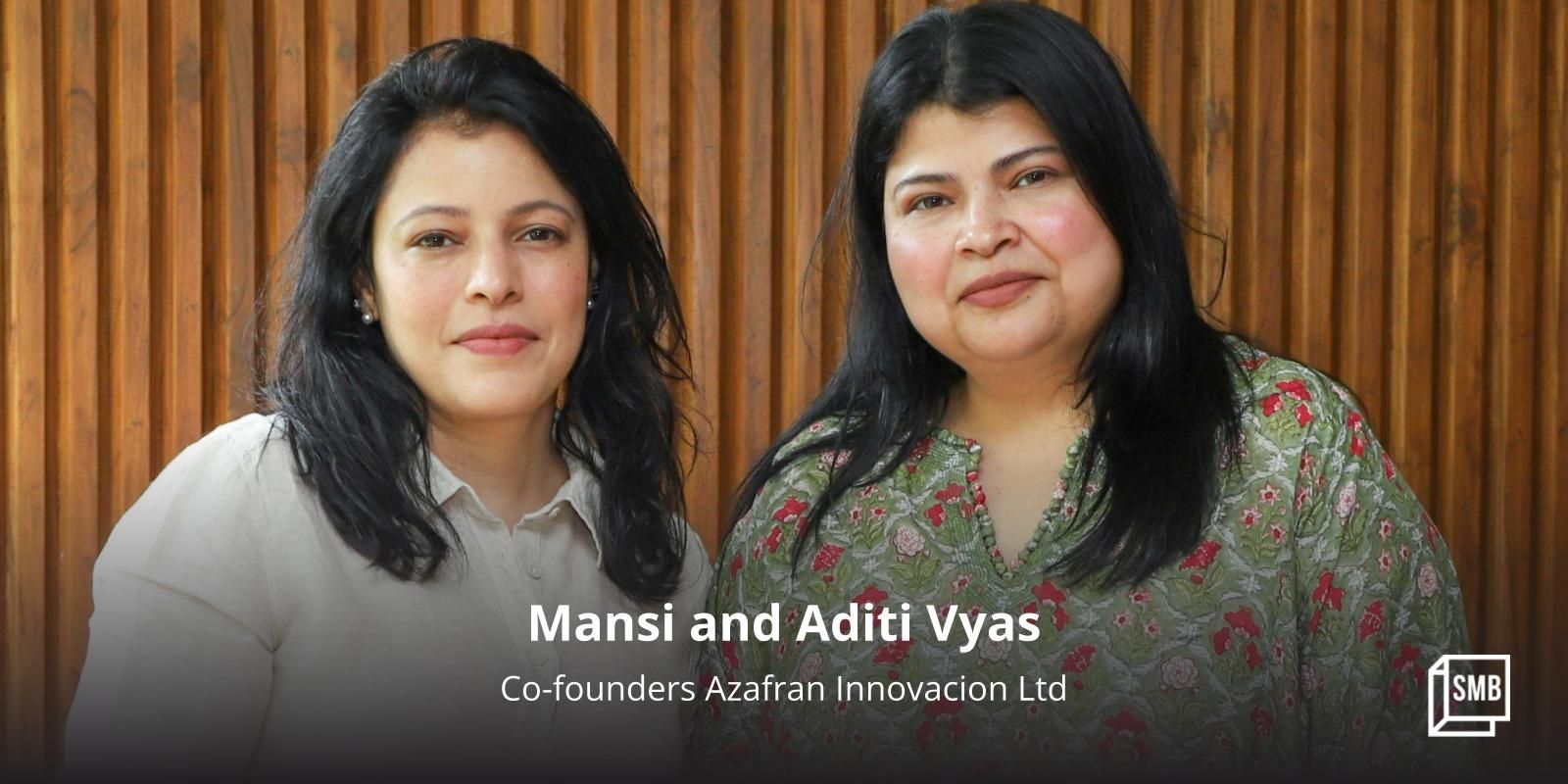How organic FMCG brand Azafran doubled its profit despite exiting 2,000 stores
Azafran Innovacion Ltd was started in 2007 as a certified organic brand and has now positioned itself as one of the first Indian brands with a complete organic FMCG range. Hit by the pandemic, here’s the story of how the offline brand went online and emerged stronger.
Launched in 2007 by sisters Mansi and Aditi Vyas, Ahmedabad-based is a leading internationally-certified organic product manufacturing company. With a focus on organic ingredients and quality products, the offline brand had been growing steadily since its inception with a presence in 2,000 general trade stores.
But the COVID-19 pandemic hit Azafran hard.
The sisters, however, decided to meet the challenge head-on—they went online in 2020 and growth has soared since then.
Speaking to SMBStory Mansi says the company has doubled profits in the last two years. “The pandemic has taught us a lot many things and we have learned a lot more about our own business,” she says.
Setting up the brand
Mansi and Aditi were studying in the UK when the idea of starting an organic brand struck them.
Mansi says she and her sister loved cosmetics and would often use a lot of European products that were organic certified and good for the skin. She adds that they found that even the cooking essentials available were of different quality in comparison to those in India.
As they belong to a manufacturing background with their father successfully running a pharma company, setting up the business was not tough. Azafran was started with an initial investment of Rs 25 lakh, taken from their personal savings.
Many new-age brands in the organic industry prefer tie-ups with farmers to source ingredients or go in for contract manufacturing. However, Mansi and Aditi wanted complete control - from farming and manufacturing to packaging and supply chain.
“My sister has done her master’s in quality assurance and analysis and I am an MBA. We hail from a manufacturing business background and it's not in our genes to outsource anything. We believe that control is the reason for any successful business. Thus, as a first step, we started farming for sourcing and grew some of the crops in our own farmland,” Mansi says.
The years 2007-2010 were a period of R&D as the farmland was yet to be organic-certified. Alongside, the sisters did solid research on the kind of products they wanted to start with.
As a pilot, Mansi and Aditi started with cooking essentials like olive oil and sunflower flower, and later forayed into skincare.
The business gained momentum by 2015 and Azafran was available around the country through general trade stores. It had certifications from ECOCERT, USDA Organic, and others.
By 2019, Azafran was present in 2,000 retail stores and was available in modern trade stores, including Aditya Birla's More Retail, with categories spanning skincare, homecare, baby care, wellness, fragrances etc.
Mansi says Azafran positioned itself as a complete FMCG brand, which no other company has done – till now. Products such as sunscreen, organic crayons, and laundry detergent became top sellers.

Azafran's farmland
A strong pivot to sustain
Though Azafran was growing well, COVID-19 shook the company.
“We were forced to exit from all 2,000 stores and let go of more than 750 people we had employed as beauty experts and sales executives. The business was completely halted,” Mansi says.
Unwilling to give up, the sisters decided on an online foray.
“We didn’t have any online presence before the lockdown. During the lockdown, we got time to think about positioning the brand and launched the website. We also got listed on marketplaces and things took off from there.”
Mansi says Azafran’s profits have doubled since the pandemic. Unwilling to share actual numbers, she says company costs went down significantly as employee headcount and rents fell.
Azafran also forayed into B2B private labelling, adding another revenue stream to their business.
“We have doubled profit from the pre-pandemic time but we are concerned about the cost of rising raw materials as it would add to overheads,” Mansi says.
Azafran clocked a revenue of Rs 7 crore in FY22 and aims to close this year at Rs 9.5 crore.

Azafran's baby care range
Standing out in a crowded market
Azafran competes with the likes of Amway, Modicare, MamaEarth, etc, but stands out as it offers the entire FMCG range under one roof. It also has a presence via Amazon in the UK, the US, Canada, the UAE, and Australia.
“The market is crowded and it's good to have more players as it will create more awareness. Earlier, people didn’t know about using sulphate-free or paraben-free products. Now, with more brands , more people are talking about organic,” Mansi says.
Talking about the future, Mansi says Azafran plans to rebuild its offline presence via the kiosk model - only in metro cities as of now. The company’s flagship store is located in Ahmedabad.
“Right now our focus is 90% online and 10% offline. We are doing rigorous social media marketing and the plan is to become so strong in the digital world that we should pull customers to us once we step out for general trade,” Mansi says.
Edited by Teja Lele











![[Startup Bharat] Y Combinator-backed BeWell Digital is enabling the digital transformation of radiologists](https://images.yourstory.com/cs/2/40d66ae0f37111eb854989d40ab39087/ImagesFrames31-1648033042143.png)
![[Funding alert] Backpacker hostel startup goSTOPS raises $1M in pre-Series A round led by IAN, Yuj Ventures](https://images.yourstory.com/cs/2/b87effd06a6611e9ad333f8a4777438f/Imagev3wm-1625732000117.jpg)